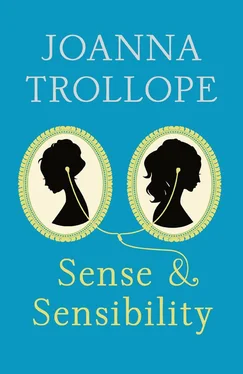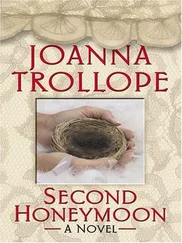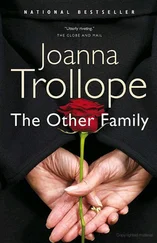Sir John the younger was entranced to inherit the Purdeys. He had also inherited his father’s passion for field sports – indeed all his local friends were distinguished by having subscriptions to the Shooting Times and freezers full of braces of pheasant that their wives were sick of cooking – but he had also profited from the childhood and adolescent years spent living with his property-developer stepfather, in Bristol.
It had been made plain to Sir John, from a young age, that the luxury of making choices in life simply did not exist without money. Money was not an evil, Charlie Croft said to his stepson, it was the oil that greased the practical wheels of life. It was foolish to the point of silliness to think you could do without it, and it was asinine to fear it. Money was there to be harnessed, to work for you.
‘And if you want to keep that old barrack going that your dad left you – and I’, Charlie Croft said, ‘would pull it down in a heartbeat and build some practical, properly insulated executive houses there, if I had my way, because it’s a cracker of a site – then you’ll have to make it earn its keep.’ He’d eyed his stepson. ‘Furthermore,’ he went on, ‘I’ll be very interested to see how you do it.’
For most of his twenties, Sir John had had little success in making Barton Park work for itself. After a short commission in the Army, in his father’s footsteps, he camped in a set of three rooms situated just above the antediluvian boiler, and commuted to a day job in Exeter, as managing director of a small company on an industrial estate making specialist pumps for desalination plants. The company had only hired him, he was well aware, because his title was useful in attracting the attention of overseas customers, who might initially be impressed by it. He actually performed quite competently, spent the winter weekends blasting the Purdeys into the skies, and hosted parties for which he became locally famous, to which everyone came dressed for the Arctic and played uproarious, childish, upper-class games that involved stampeding through the echoing rooms of Barton Park and lighting fires all over the house as randomly and recklessly as squatters.
Then, when even he, with his sociable and sanguine temperament, was beginning to despair of moving Project Barton Park even a millimetre forward, he had a stroke of luck. Panting down a passage at one of his own parties in the course of an eccentric treasure hunt, he came across a figure huddled, shivering and sniffing, on one of Barton Park’s deep windowsills. The figure turned out to be a girl, a very pretty girl called Mary Jennings, who had come to the party because of a man who had invited her and then abandoned her for someone altogether heartier, and who was cold and miserable and had no idea where she was, or how to find her way back to Exeter and a train to London.
He had helped her off the windowsill, discovered that under the old blanket she had wrapped herself in – ‘Good God, you can’t have that thing anywhere near you, you really can’t, it’s what my dogs sleep on!’ – she was wearing an enchanting but wholly inappropriate little chiffon dress embroidered with spangles, and borne her off to the least disordered of the rooms above the boiler, where he had given her a glass of brandy and also the most reputable of his ancient but quality cashmere jerseys.
Mary Jennings turned out to be, in old-fashioned parlance, an heiress. She was heiress to a company founded by her father, a country-clothing company which had had immense success in the 1960s and 70s with members of organisations like the Country Landowners’ Association, so that when Mr Jennings died, he was able to leave his widow not just a penthouse flat in London, but also a considerable capital sum to be shared between her and his two daughters. Mary Jennings had come down to Exeter because of the man who had abandoned her, and she stayed because of the man who rescued her. Mary Jennings of Portman Square became Lady Middleton of Barton Park, and West Country Clothing relocated from its factory in Honiton – originally chosen by Mr Jennings for the relative cheapness of its labour costs – to the stable blocks and outbuildings that Sir John had almost despaired of finding a use for.
Sir John himself turned out to be an admirable entrepreneur. His mother-in-law, who shared his joviality and enjoyment of company, was delighted to allow him to modernise the company. He hired a new designer, researched modern methods of weatherproof and thornproof fabrics, and produced catalogues full of colour and energy, using his friends and their dogs and children as models. The turnover of the company doubled in three years, and tripled in five. Barton Park acquired a new roof and a central heating system that was a model of modern technology. Sir John and Lady Middleton themselves produced four babies in the same five years, and embarked upon a lifestyle that Sir John said he would make no apologies for. ‘My friends,’ he told an interviewer from the Exeter Express & Echo , ‘call me the Robber Baron. Because of our pricing. But I call our pricing aspirational, and it works. Ask the Germans. They love us. So do the Japanese. Just take a look at our order books.’
He had been in his office that morning, his office converted out of an old carriage house and ablaze with ingenious and theatrical modern lighting, when his mother-in-law came to find him. He was fond of his mother-in-law to a point when he almost prided himself on that affection, and genuinely welcomed the amount of time she cheerfully spent at Barton Park. She liked the same things in life that he liked, she had given him a free hand with the company, and had provided him with a good-looking wife who never interfered in the business or objected to his boisterous pleasures as long as her children’s welfare was paramount and nobody questioned the amount of money she spent on them, the house, or on her own wardrobe.
‘Frightful,’ Abigail Jennings said, blowing into the office in a plump whirl of capes and scarves. ‘Frightful wind this morning. Awful portent of autumn, even for me with all my very own insulation.’ She regarded her son-in-law. ‘You look very jolly, Jonno.’
Sir John looked down at his terracotta cords and emerald sweater. He said, gesturing at himself, ‘Bit bright? Bit brash?’
‘Not a bit of it. You look splendid. All this creeping about in black and grey that girls do in London. Ghastly. Funereal. Jonno dear. Have you got a moment?’
Sir John glanced at his computer screen. ‘I’ve got a conference call with Hamburg and Osaka in fifteen minutes.’
‘I’ll be ten.’
He beamed at her. ‘Sit yourself down.’
Abigail wedged herself into one of the contemporary Danish armchairs that Mary had chosen for the office and unravelled a scarf or two. She said emphatically, ‘Something extraordinary …’
‘What?’
‘I was in Exeter yesterday, Jonno. Giving lunch to that goddaughter of Mary’s father’s. And her sister. Sweet pair. So grateful. Lucy and Nancy Steele; their mother was—’
‘Abigail, I only have ten minutes.’
‘Sorry, dear, sorry. The trouble about my age is that one thing constantly reminds me of another and then that thing of a further thing—’
‘Abi,’ Sir John said warningly.
Abigail leaned forward a little over her bosoms and stomachs. ‘Jonno. Do you have relations in Sussex?’
Sir John looked startled. ‘No. Yes. Yes, I think I do. Cousins of Dad’s. Well, mine too, I suppose. Near Lewes. Another idiotic great monster like Barton or something.’
Abigail held up a plump hand winking with diamonds. ‘Dashwood, dear. They’re called Dashwood. Lucy and Nancy had heard about them from a boyfriend of theirs or something – I couldn’t quite work out who, you know what these girls are like. But it’s a terrible story, truly awful!’
Читать дальше
Конец ознакомительного отрывка
Купить книгу


![Джейн Остин - Sense and Sensibility [С англо-русским словарем]](/books/26612/dzhejn-ostin-sense-and-sensibility-s-anglo-thumb.webp)









